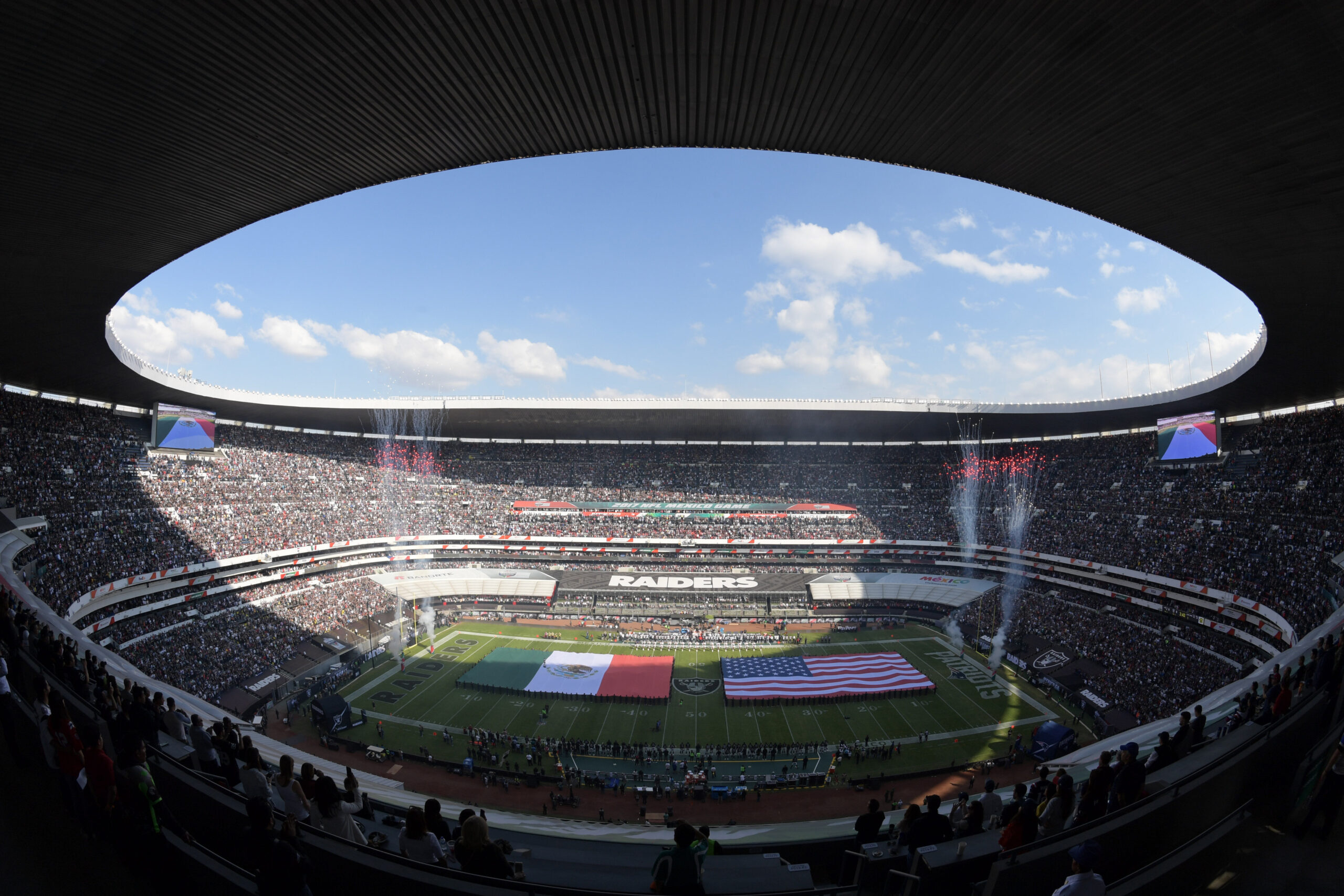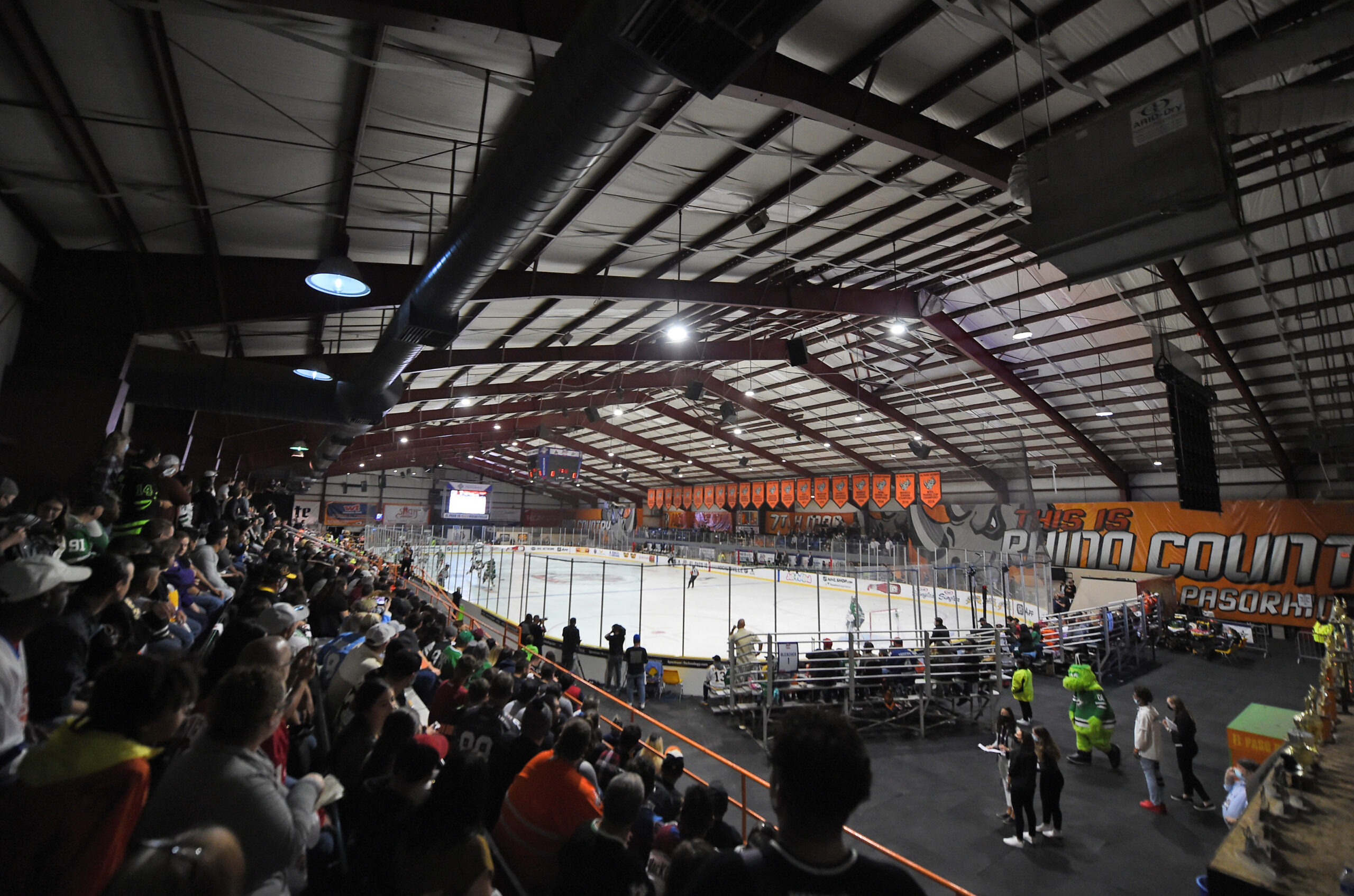© 2026 ALLCITY Network Inc.
All rights reserved.

Ideally, the Coyotes’ Kraft Hockeyville game against the Dallas Stars in El Paso, Texas on Sunday would have served as the launching point for a much bigger announcement: an NHL game in Mexico. A robust 82.9 percent of El Paso’s population is Hispanic in origin, based on U.S. Census Bureau data, and Juarez, the city just across the Rio Grande from El Paso, is part of Mexico’s zona frontera, where no visa or passport is required to enter from the United States.
Unfortunately for the NHL, it hit a roadblock called COVID-19 that delayed some of its plans. Mexico was part of those plans.
“I can tell you that we started exploring opportunities maybe a year to 18 months before the pandemic,” NHL deputy commissioner Bill Daly said Tuesday. “We certainly had an intention and have an intention of continuing to pursue it.”
It is no secret that the NHL is looking for new markets and new opportunities to grow the game. It has already played games in Europe, Japan and China, and the 2022 Olympics in Beijing offer a chance to augment the league’s exposure there. To date, however, the NHL has done little more than the bare minimum in Hispanic/Latino communities, both domestically and abroad.
Some teams in markets that include large Hispanic populations have launched their own initiatives that include community outreach, clinics, business and nonprofit development. The Los Angeles Kings have hosted clinics and camps in Mexico, the Florida Panthers have annually hosted the LATAM Cup, a tournament that features Latin American and Caribbean hockey teams. The Coyotes have been active on a number of fronts in the local Latino communities for years, but Coyotes president and CEO Xavier Gutierrez, the first Latino to hold such a position in NHL history, sees far greater opportunities.
“I know enough folks in Mexico who do business there, or who have companies there that have been very public with me in their opinions that you’d be surprised how much people like the game there,” said Gutierrez, who was born in Guadalajara. “There’s a growing community here in the U.S of Latinos who are growing in not only demographic influence, but also economic influence. This game would help create almost sort of a centralizing opportunity where it’s like, ‘Hey, we’re going to have this game. Let’s look at the various communities in which NHL teams have a significant and growing Latino population and let’s see how we can create momentum by utilizing this game as sort of the catalyst.’”
With Gutierrez and Alex Meruelo, the first Latino majority owner in NHL history, it should be a no-brainer to include the Coyotes in whatever inaugural game the NHL stages in Mexico, but Daly and Gutierrez both said that the game would not be a one-off. It would be part of a continued and growing relationship.
Among U.S. NHL markets, Dallas, Los Angeles, Phoenix, San Jose and Miami make the most sense for participation in future games. The first four reside in border states and have large Latino populations, while the Miami area is a U.S. gateway for immigrants from many Spanish-speaking nations including Cuba, where Meruelo traces his ancestry. The league would have far more options, however. New York and Chicago possess two of the nation’s top five metropolitan Hispanic populations, and Toronto boasts the NHL’s biggest Hispanic star, Auston Matthews.
“I’m proud of who I am, where I come from, my ancestry and my background,” Matthews told me in a Q&A two years ago. “I’ll do whatever I can to promote the game in the Hispanic community.”

The greatest challenge to staging a game in Mexico is finding a suitable venue.
“You have to have an arena capable of hosting an NHL game and those aren’t always easy to come by,” Daly said. “In Mexico, I would imagine they are less easy to come by.”
That said, Daly confirmed that the NHL did vet one potential site (he would not name it because the NHL is not far enough along in the process), and he did note the most obvious city.
“Mexico City is a huge marketplace,” he said. “I would imagine there are a number of arenas and unfortunately, we didn’t have the opportunity to vet every one.”
Monterrey, Mexico’s business and industrial capital, and Guadalajara are other potential sites.
There are other hurdles in the process to staging a game in Mexico.
“It depends on the model,” Daly said. “We have played games outside of North America under different models, but typically, we connect with a local promoter who is familiar with putting on events in that market and we reach a financial deal with them on how tickets are marketed and sold and how revenues are allocated; who’s responsible for expenses and travel.
“But primarily, it’s still an arena issue. We even faced some challenges in El Paso to get the facility up to NHL standards and that can be extensive and expensive.”
The NHL has a long history of staging games in other nations. In 1938, the Detroit Red Wings and Montreal Canadiens staged a nine-game tour through England and France. In 1959, the Chicago Blackhawks and New York Rangers went on a 23-game tour of England, Switzerland, France, Belgium, West Germany and Austria. The league has participated in tournaments against local teams in the former Soviet Union, the Czech Republic and Sweden. More recently, the league has played games in Japan, Finland and China.

If the NHL can go all the way to Europe, it can certainly go to a neighboring country like Mexico. It even has a media rights partner in ESPN that could easily broadcast the game and its surrounding events via its main outlet and ESPN Deportes. International rights in Latin America, the Caribbean and parts of Europe are part of the seven-year deal that ESPN and the NHL announced in March.
“I’m of the opinion that we should be further along, but that’s just my personal opinion,” Gutierrez said. “I’m not going to sit here and say that there’s no interest on the league’s part or that they’re not being mindful of trying to make it happen. I’ve had conversations with Bill, with (commissioner) Gary (Bettman) with (NHL Chief Content Officer) Steve Mayer about a Mexico game. I do believe that there is interest, I do believe that they’re exploring it, I do believe that they understand the opportunity that exists there. I just see the opportunity and it excites me because it is clearly something that is meaningful to me.”
Daly confirmed that a game in Mexico is still on the league’s front burners.
“We’re looking at all opportunities to grow our fan base but also participation in our sport, and that certainly includes Hispanic communities,” he said. “We do have a number of clubs with large Hispanic communities in those markets and the Coyotes are one.
“You have to have a long-term vision. You can wake up the next morning after playing one of these games saying it either worked or didn’t work. You have to see what sort of interest you’re creating, both on a gradual basis and long term. Certainly, that was the approach that we took in Europe. We were creating interest in the sport that’s not just for a 24-hour period. It’s intended to be more long-term in impact.”

If the Coyotes were granted the privilege of hosting the game, Gutierrez said it would provide all manner of community and business opportunities that could impact the entire league, but it would also be a feather in the Coyotes’ cap. Arizona has never played in one of the NHL’s showcase outdoor games. Nor has it played a game outside the U.S. or Canada since 2010 when it played Dinamo Riga (KHL) at Arena Riga in Latvia, and played two games against the Boston Bruins to open the regular season at O2 Arena in Prague, Czech Republic.
“With both Alex and myself clearly being spokespeople for the sport for the league, I could see this being a very big opportunity to engage with elected leaders, community leaders, business leaders, and potentially create new business relationships for the league and for the team.
“This organization has, unfortunately, not participated in many of these sort of premier, special events staged by the league. I just think that being a part of that showcase in and of itself is important for our organization as we really forge ahead with a new direction, a new narrative and a new strategy. When you’re talking about the first Latino owner in NHL history, and the first Latino president, it is more than a part of our narrative. It’s who we are, and I just think it would be incredible for us to be able to serve as the ambassadors for the game in those communities.”
Follow Craig Morgan on Twitter
Comments
Share your thoughts
Join the conversation



